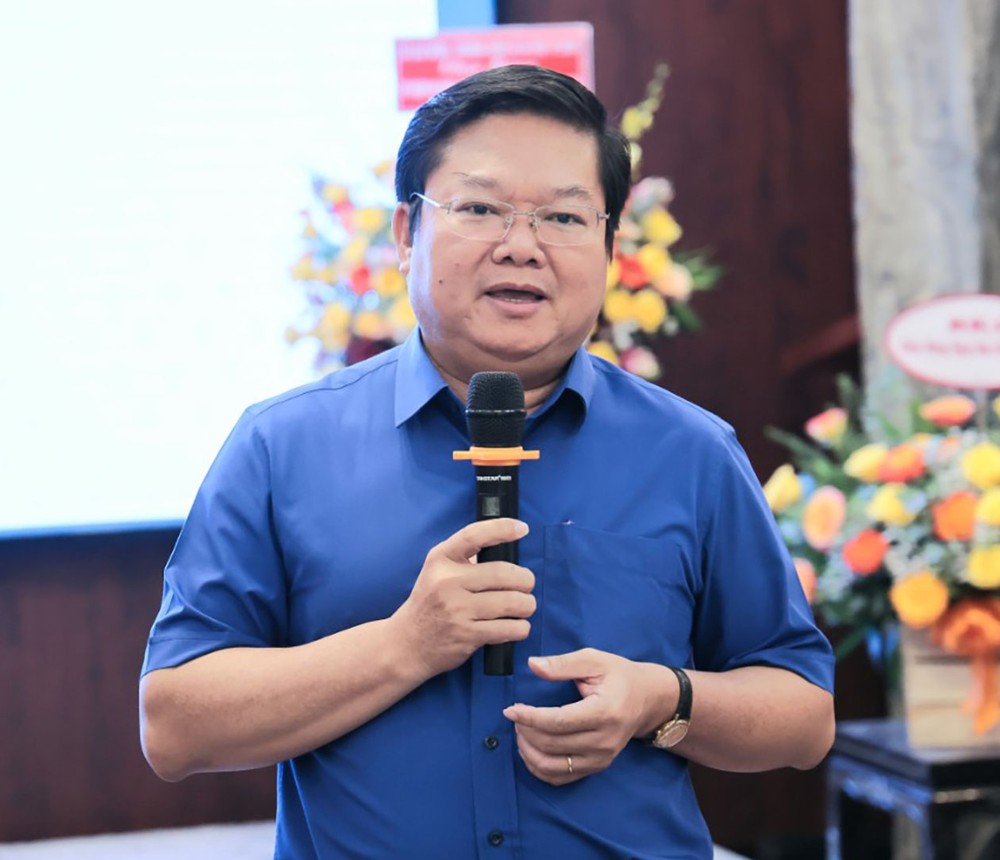
Ho Chi Minh City's vocational education system provides the labor market with about 200,000 workers each year. However, according to assessments conducted by businesses, the quality of this human resource does not meet the requirements of rapid development in science and technology.
Currently, in the city, there are 62 colleges, 60 secondary schools, 77 vocational education centers (VECs), and 181 VEC facilities. Vocational training establishments presently supply the market with over 400,000 laborers. The number of learners and the quality of training have been improved over the years, contributing to a gradual increase in the proportion of trained laborers to 87.63 percent as of June 2024.
However, the results of enrollment in short-term training courses still account for a high proportion of the total annual enrollment results. This leads to the majority of workers finding it difficult to adapt to the rapid changes in science and technology compared to workers with secondary or higher education levels. Digitalization and digital transformation have not been fully implemented by VEC institutions.
In addition, many VEC facilities have been degraded with outdated teaching and learning equipment, small land areas; therefore, they do not meet the minimum area requirements according to the present regulations.
In May 2024, the Ho Chi Minh City DOLISA coordinated with departments and agencies to advise the municipal People's Committee to issue Decision 1649/QD-UBND approving the Labor and Employment Strategy for the city in the period of 2023-2025, with a vision to 2030.
The Strategy outlines solutions to ensure the goal of socio-economic development, ensure social security, and meet the requirements of economic restructuring towards modernization and international integration, especially to achieve the labor productivity growth target as directed by the Prime Minister and the Resolution of the Ho Chi Minh City Party Congress for the 2020-2025 period.
The Department is also finalizing the Project on Management of the VEC Network in the city by 2030 after listening to comments from departments, agencies, districts and VEC facilities. Accordingly, the city will merge and reorganize public VEC facilities under the city, continue to invest in modern facilities and equipment, and inspect the quality of vocational training programs.
From now until 2025, the southern largest city will pour investment in technical teaching facilities for three public vocational education institutions with a total investment of over VND400 billion. In the period from 2026 to 2030, the city will allocate VND 2.9 trillion for upgrading equipment and enhancing training capacity at 15 vocational education institutions.
Simultaneously, the education sector will continue to assess the needs of businesses and society to advise the city on fundamental social welfare policies, support vulnerable workers, and provide supplementary and advanced training for labor force development.
During the 2021-2025 period, three institutions including HCMC Vocational College, Nguyen Truong To Technical College, and Cu Chi Vocational Intermediate School have been tasked by the HCMC People’s Committee to propose adjustments to investment plans for public vocational education projects. Notably, these projects include the development of a high-quality vocational school at HCMC Vocational College with a total investment of nearly VND234 billion, equipment procurement at Nguyen Truong To Technical College over VND117 billion, and vocational training equipment acquisition at Cu Chi Vocational Intermediate School approximately VND82 billion.
For the period between 2026 and 2030, the HCMC People’s Committee directs the allocation of mid-term public investment funds to improve infrastructure and teaching equipment at least 15 public vocational education institutions in the city. These institutions include Hung Vuong Technical College (around VND171 billion), Thu Duc College of Economics and Technology ( VND103 billion), Quang Trung Vocational Intermediate School ( VND78 billion), and TP College of Economics and Technology (approximately VND200 billion ).
Public vocational education institutions in the city will also maintain close collaboration with lead units in the comprehensive international workforce training project across eight fields including IT and communications, mechanical engineering and automation, artificial intelligence, business administration, finance and banking, healthcare, tourism, and urban management. This collaboration aims to supply skilled laborers after vocational education and university studies, meeting the demands of a dynamic workforce.
























